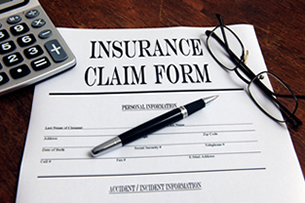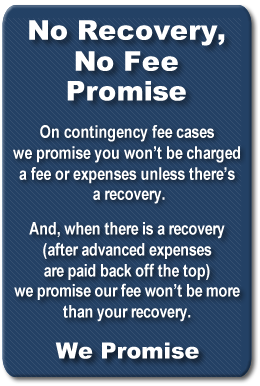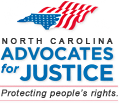Recorded Statements After Filing a Workers’ Compensation Claim
After filing a workers’ compensation claim, your case will be assigned to an insurance adjuster who works for your employer’s insurance company. This recorded statement will be used to determine whether the insurance carrier will accept or deny your claim. You should carefully consider talking to a workers’ comp lawyer before giving one.
You should be aware that some injuries and accidents are covered under the North Carolina Workers’ Compensation Act, and others are not. As you can imagine, it is impossible to foresee the facts and circumstances that are involved in each and every workplace accident or injury, so the Act has very general language about what is covered. You must understand that the adjuster who requests to take your recorded statement knows more about the workers’ compensation system than you do. They know the Workers’ Compensation Act, and which injuries are covered and which are not. The way you explain your accident or injury, and the terminology you use could mean the difference in whether you receive workers’ comp benefits.
For example, in North Carolina, the legal standard for proving that you hurt your back at work is more worker-friendly than the legal standard for proving other types of injuries. Back injuries are covered if you hurt your back in an “injury by accident,” or if it happens in a “specific traumatic incident.” So where an “injury by accident” requires you to have an unusual condition of work or an unusual event that causes the injury, if you have a back injury, you only have to prove a “disabling physical injury to the back arising out of and causally related to such incident.” See our Workplace Injuries page for a more complete explanation.
Common Questions Asked in Workers’ Compensation Recorded Statements
Workers’ comp adjusters are trained to take recorded statements that will protect the insurance company and may attempt to get you to say the wrong thing during a recorded statement so that your claim is minimized, or denied altogether. If you do not clearly describe your accident, or understand what the adjuster is really asking, your claim may be denied due to your answers. A trained workers’ comp insurance adjuster may ask you whether you were “doing your regular job?” or “if anything unusual happened?” A skilled adjuster will ask leading questions like: “This was a normal work day, correct?” or “You’ve been asked to do that before without any problems, right?” Answering “yes” to these types of questions will increase the chance that your claim will be denied.
Be careful answering these questions. Call an experienced workers’ comp attorney and review the facts and get some advice before agreeing to a recorded statement. Take advantage of a free consultation. It could be extremely important for your claim.
Contact a Workers’ Compensation Lawyer for a Free Consultation
If you have questions or concerns about a workers’ compensation claim, or have been asked to give a recorded statement by an adjuster, contact the North Carolina workers’ compensation lawyers at the law firm Hemmings & Stevens, PLLC today. We offer free initial consultations and work on a contingent fee basis, which means there are no fees unless we make a recovery for you. You can call us at 919.277.0161 or contact us online.
This article regarding recorded statements in North Carolina workers’ compensation claims is for informational purposes only and is not intended to be legal or medical advice. You may need to seek the advice of a workers’ compensation lawyer at the law firm of Hemmings & Stevens, PLLC that has experience in these matters, if you have a workers’ compensation claim and have been asked to give a recorded statement.











